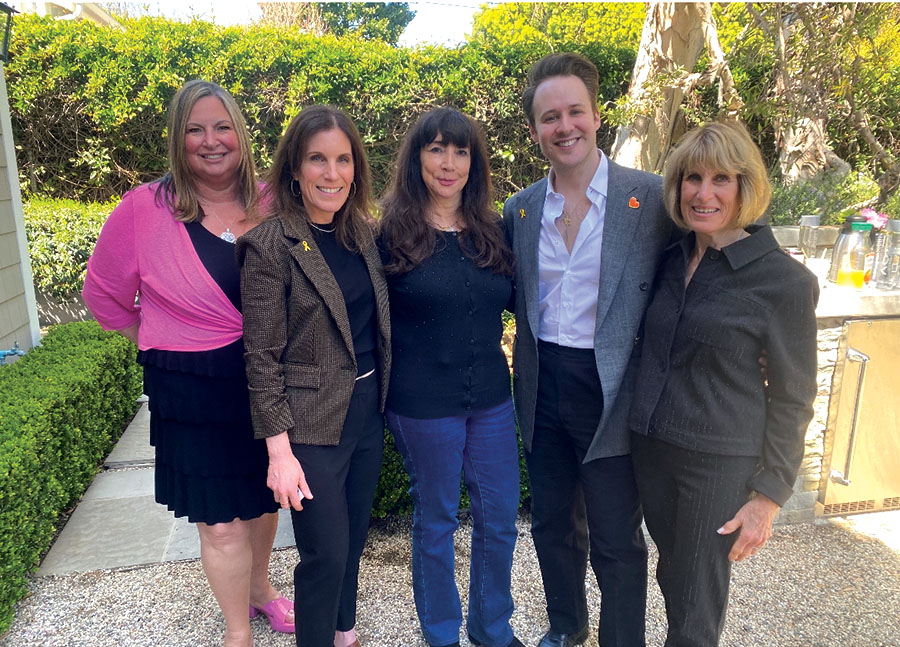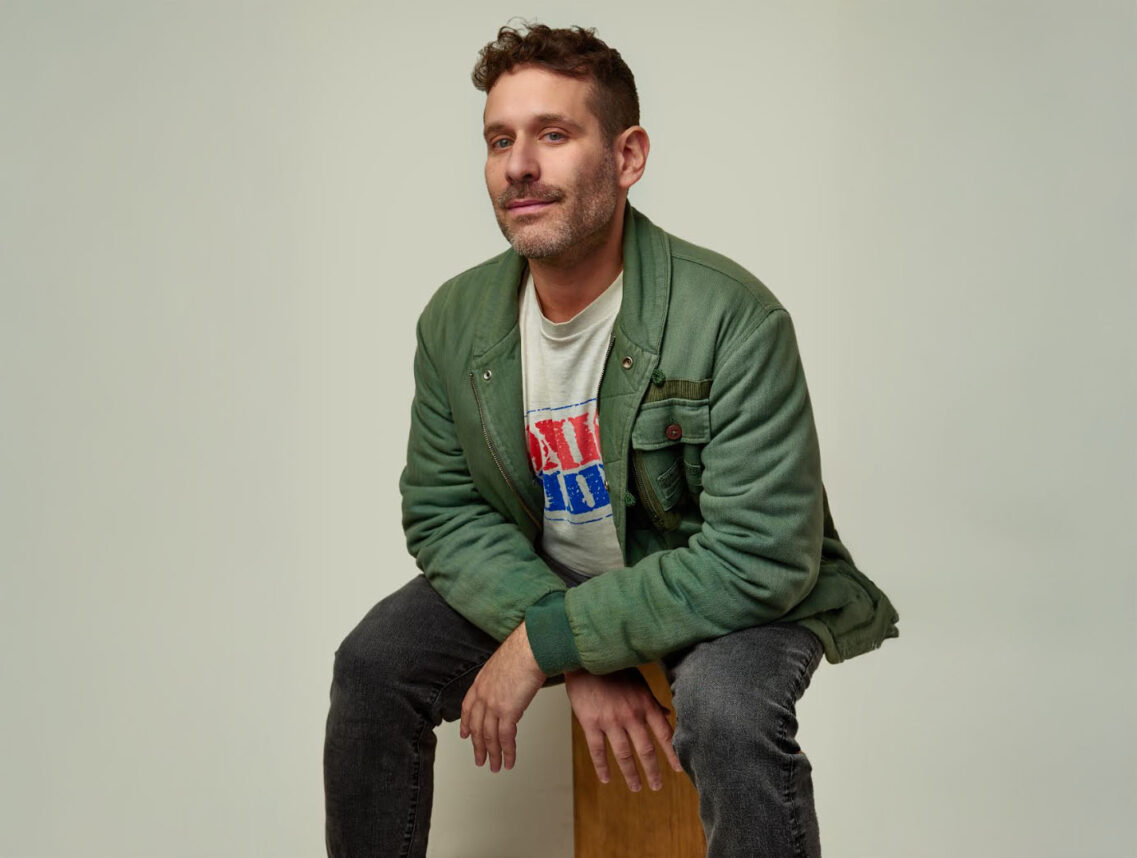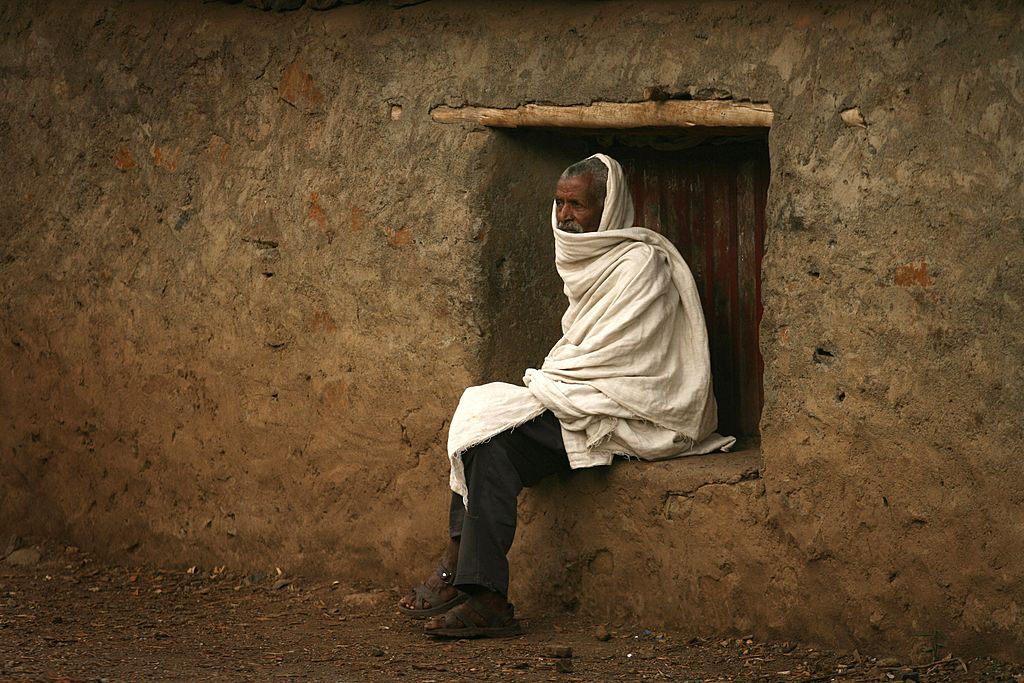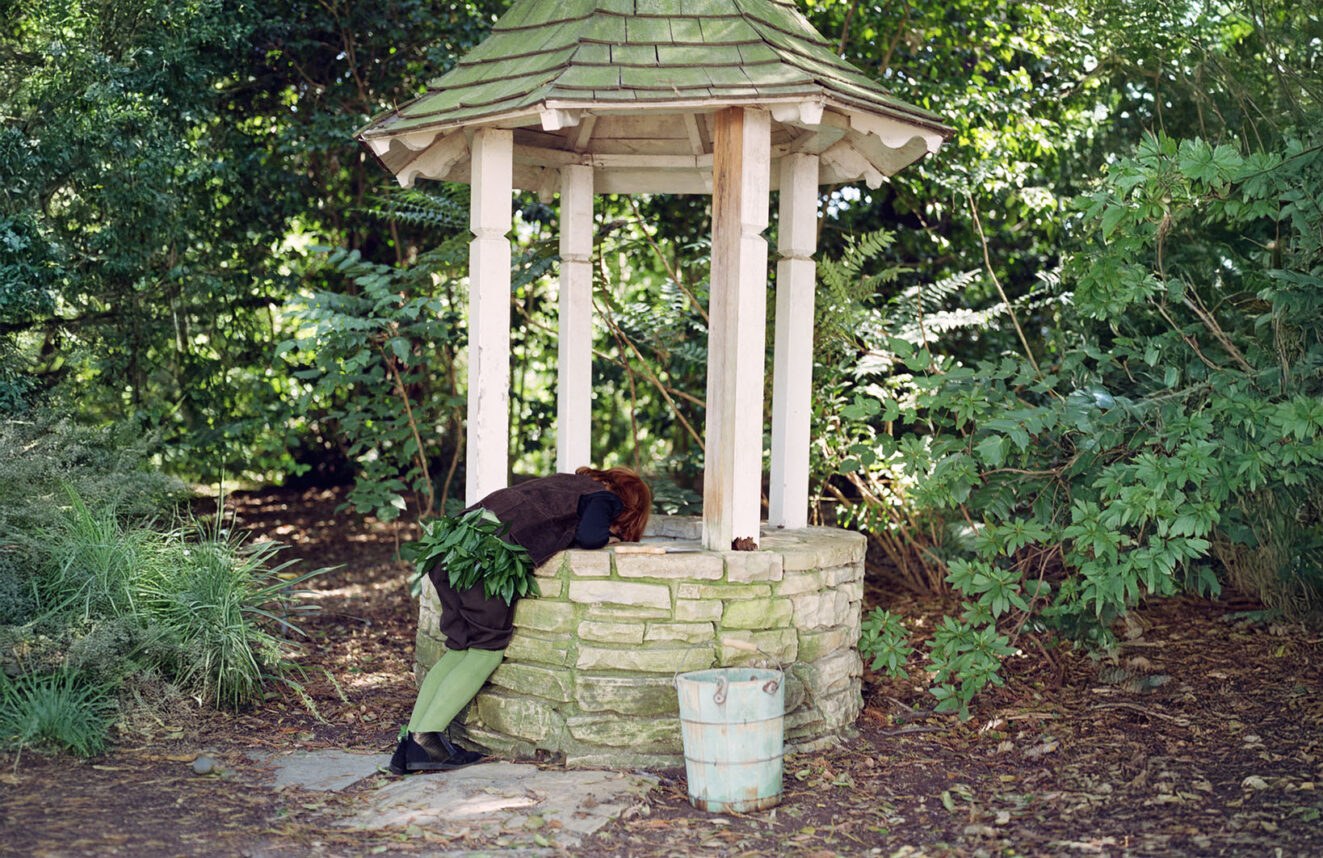It’s a balmy night as we join those filing into the basement
social hall of the venerable Libertad Synagogue in the heart of downtown Buenos Aires. It resembles any Friday night service
crowd anywhere in the United States, except that it’s standing-room only. An
elderly man sings Yiddish songs in a still-strong tenor followed by a young duo
on saxophone and clarinet playing selections from “Fiddler on the Roof.”
The crowd applauds, while sipping tiny paper cups of wine.
This is what they’ve come for. This and the food — especially the food. Not
that it’s anything to write home about. The meal is rice stuffed tomato, and
dry gefilte fish, served tureen style. Dessert — ice cream straight from the
carton — is simple in the extreme. But there are few leftovers. When you’re
hungry it all tastes good. And these people are hungry. The catastrophe that
ravaged Argentina in December 2001 — the peso was devalued to a third of a
dollar and all savings were frozen — hit the middle class particularly hard.
Since most of the 200,000 Argentine Jews are part of that class, they are many
among the suffering.
These are the people Rabbi Sergio Bergman is entertaining at
the Shabbat dinner at the Libertad Synagogue. The slim, 40-year-old rabbi looks
exhausted. His well-tailored suit hangs hauntingly on his slender frame. His
eyes are bloodshot. He’s too busy trying to inspire his guests to partake of
the spirit of Shabbat to touch a bite of his dinner.
He parades between the tables singing familiar Ashkenazi
melodies. He softly cajoles the congregation to get involved in the political
protests against the government’s inaction and corruption in the face of human
suffering, and to wear the colors of the Argentine flag in their lapel, as he
does. He tells us that he is flying in the face of Argentine culture and
tradition. Argentina, he explains, does not have a culture of philanthropy and
consequently neither do its Jews.
“We need to teach our people to give money,” he explained
sadly. “In this society you take, you don’t give. We need to teach our politicians
to be mensches, and not to destroy this country because it’s a country with
plenty of blessings and plenty of resources. The Argentine people are the
problem — our culture, our way of life.” During our two weeks in Argentina we
heard the same story repeatedly. Populist governments from Peron on had
corrupted the people by giving them handouts rather than teaching them to farm
the rich land and fend for themselves.
“We were all immigrants,” said Bergman, whose grandparents
came from Poland. “But we have lost the values of the immigrant culture — the
values of effort and work and sacrifice to make a future.”
As we talked to people from all around the country, a
consistent picture emerged. The Jewish community in Argentina was one of the
wealthiest and most cultured in the world. No more. “It’s as bad as America was
in the Great Depression,” said Steven Schwager, executive vice president of the
New York-based American Jewish Joint Distribution Committee (JDC).
The new Jewish poor include professionals, business men,
shop and factory owners who can no longer get business loans, and can’t afford
to import the parts they need to carry on their businesses. Students have had
to drop out of school and college to try and search for non-existent jobs to help
their families. Unemployment is more than 25 percent. While the old are
struggling to eat, the young are leaving in droves.
While we were in Buenos Aires, Communidades, the newspaper
of Argentina’s Jewish community ran ads offering jobs and resettlement expenses
to professionals who would like to relocate to Birmingham, England.
Devora, who is in her late 20s and works at AMIA Communidad
Judia — the building that was blown up in 1992 with 85 dead — is leaving with
her computer analyst husband for Winnipeg, Canada. The folks from Winnipeg flew
them out for a month and promised them jobs and aid for housing. Jewish leaders
tried to encourage them to make aliyah, but Devora turned that option down.
“Not because of the war,” she hastened to explain. “Too aggressive,
too loud, too rude. Canada is a civilized country where things work — they
want us. They will help us. And our children, when we have them, will have a
future.”
But leaving comes at a considerable emotional cost.
Argentines love their country with a visceral passion. They will stay until the
bitter end because nowhere else measures up.
One woman who has visited her son in Los Angeles found the
people there “cold and aloof. And all everybody does is work all the time,” she
complained.
Her husband agreed. “We love Buenos Aires, the gaiety of it,
the smells, the life, the activity. We don’t want to leave,” he said.
Bergman, ever the optimist, sees in the crisis an
opportunity. This determinedly secular community has always forged its
collective identity through the Jewish social and sporting clubs that dot the
city; synagogue membership was minuscule. That is now changing. For a start,
they can no longer afford country club fees, and there is more.
“In the crisis, they come to the religious institutions to
receive support and this is a new opportunity to involve them in Jewish life,”
the rabbi said. If the crisis continues he knows synagogue services will be
standing-room only. It is a small comfort.
To help, contact Will Recant at the JDC at (212) 885-0839;
or visit www.jdc.org. Donations marked “Argentine Relief Fund” can be sent to
ARZA/World Union for Progressive Judaism, North American 633 Third Ave., New
York, N.Y., 10017.” Â
Sally Ogle Davis is a Southern California-based freelance writer. Ivor Davis writes a column for The New York Times Syndicate.






















 More news and opinions than at a Shabbat dinner, right in your inbox.
More news and opinions than at a Shabbat dinner, right in your inbox.